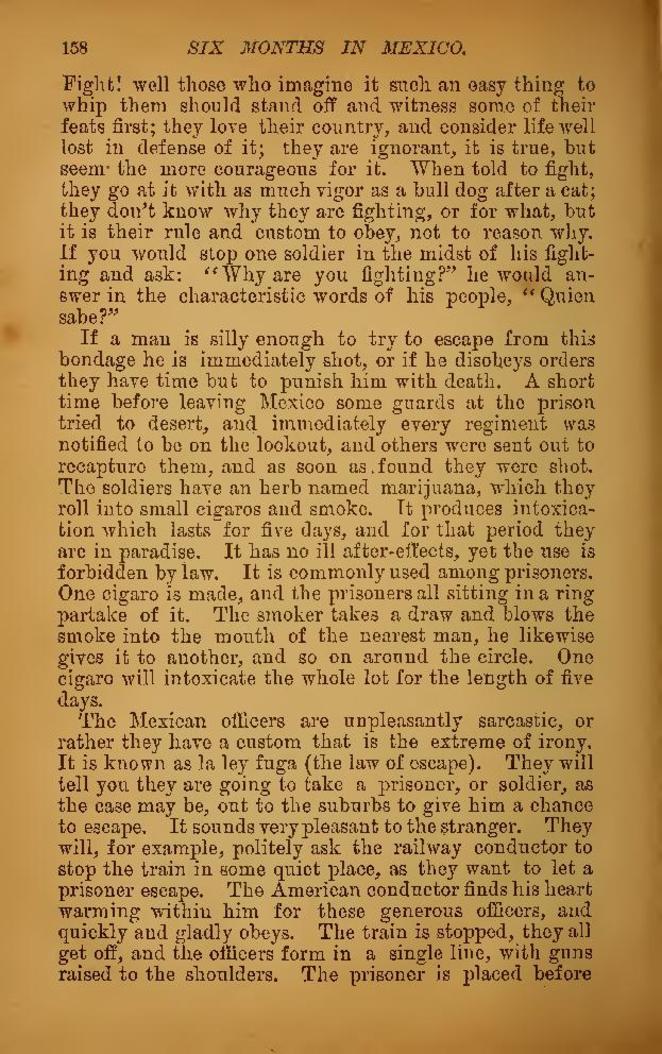Fight! well those who imagine it such an easy thing to whip them should stand off and witness some of their feats first; they love their country, and consider life well lost in defense of it; they are ignorant, it is true, but seem the more courageous for it. When told to fight, they go at it with as much vigor as a bull dog after a cat; they don't know why they are fighting, or for what, but it is their rule and custom to obey, not to reason why. If you would stop one soldier in the midst of his fighting and ask: "Why are you fighting?" he would answer in the characteristic words of his people, "Quien sabe?"
If a man is silly enough to try to escape from this bondage he is immediately shot, or if he disobeys orders they have time but to punish him with death. A short time before leaving Mexico some guards at the prison tried to desert, and immediately every regiment was notified to be on the lookout, and others were sent out to recapture them, and as soon as found they were shot. The soldiers have an herb named marijuana, which they roll into small cigaros and smoke. It produces intoxication which lasts for five days, and for that period they are in paradise. It has no ill after-effects, yet the use is forbidden by law. It is commonly used among prisoners. One cigaro is made, and the prisoners all sitting in a ring partake of it. The smoker takes a draw and blows the smoke into the mouth of the nearest man, he likewise gives it to another, and so on around the circle. One cigaro will intoxicate the whole lot for the length of five days.
The Mexican officers are unpleasantly sarcastic, or rather they have a custom that is the extreme of irony. It is known as la ley fuga (the law of escape). They will tell you they are going to take a prisoner, or soldier, as the case may be, out to the suburbs to give him a chance to escape. It sounds very pleasant to the stranger. They will, for example, politely ask the railway conductor to stop the train in some quiet place, as they want to let a prisoner escape. The American conductor finds his heart warming within him for these generous officers, and quickly and gladly obeys. The train is stopped, they all get off, and the officers form in a single line, with guns raised to the shoulders. The prisoner is placed before
